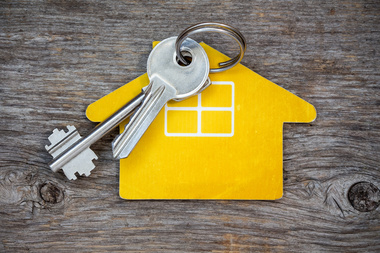
This type of planning is usually done with an estate planning lawyer, who can help you put together a plan that will pass down your home to your children, grandchildren or whomever it is that you choose. Unfortunately, they don't just get a free home (unless of course it is paid for in full) — they also get the remaining mortgage payments that come with it.
If you mortgaged the property with a co-borrower, then the payments defer to them. The co-borrower would become the legal primary owner of the property and would reserve the right to live in it, under the assumption that they continue making payments and stay up to date with them. They also have the legal right to refinance the home or sell it. These laws tend to vary state by state, so make sure to double-check which apply to you.
If you don't have a co-borrower, then the co-signer takes the reins and decides what happens. This person then becomes responsible for making payments, selling the property or whatever it is that they choose to do. Just make sure the co-signer is aware of this and notifies the lender of the change, rather than just mailing in checks every month.
In the absence of both, you should be sure to designate a beneficiary of the property. This person would then become responsible for continuing payments or selling the property, same as a co-signer or co-borrower.
If you are nervous that the person you are leaving the property to might not have the funds to maintain it, consider adding some insurance. Options include life insurance or mortgage life insurance, also known as mortgage protection insurance, in order to assist the individual with payments and additional expenses.
In either case, the best plan of action is to prepare and be prepared for when the unthinkable happens. Draft a will or a trust and put all your wishes into writing. This is the best way to ensure that your assets will not only go to the individuals you choose, but also guarantees there won't be any family arguments on who gets to keep the house or who gets burdened with the mortgage payment. Protect yourself and protect your loved ones. If you need assistance or further insight, feel free to give me a call. I'm always here and happy to help.
No comments:
Post a Comment